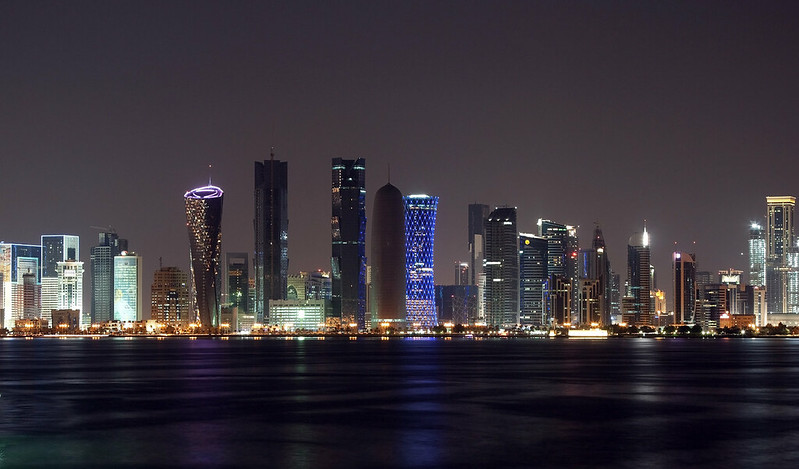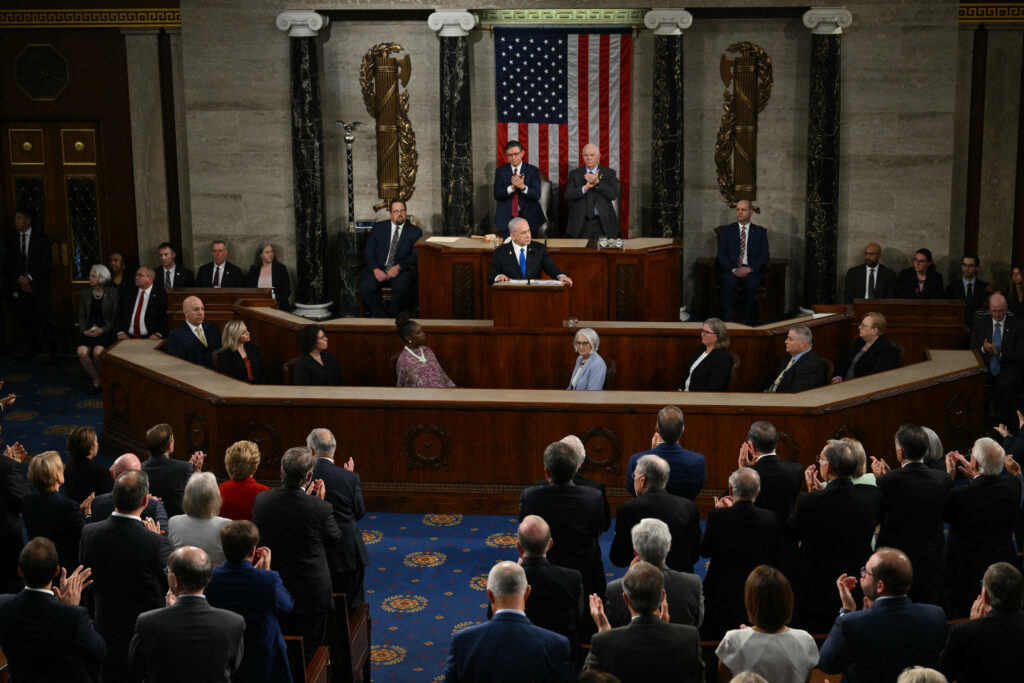The Blockade of Qatar and Lessons for Small States
- - October 19, 2020

By Kristian Coates Ulrichsen
Nearly 40 months have passed since Saudi Arabia, the United Arab Emirates (UAE), Bahrain and Egypt imposed an air, land and sea blockade on Qatar. However, this has failed to isolate Qatar in the regional and international community or forced it to accede to the 13 maximalist “demands” that would have amounted to an unprecedented infringement of state sovereignty.[1] Policymakers in Doha responded rapidly and effectively to the closure of Qatar’s only land border with Saudi Arabia, put in place new trade routes that diversified the country’s supply chains, and accelerated plans to localise production of dairy products and other basic items. By September 2017, the blockade was “stuck” between Qatar’s resilience and the quartet’s unwillingness to back down, and subsequent attempts by Kuwait and the United States to mediate have yet to produce a negotiated end to the deepest rift in the Gulf since the Iraqi invasion of Kuwait in 1990.[2]
Qatar and Singapore have both overcome the constraints of their territorial size to play a prominent role regionally and globally. They have struck out on their own paths, despite pressure from their neighbours, and have thrived, as a technology capital and trade-based economy in Singapore’s case, and Qatar as the world’s largest exporter of liquefied natural gas (LNG). Though Qatar’s armed forces are not particularly significant, it has hosted the forward headquarters of the United States’ military’s Central Command since 2003. By contrast, Singapore has established a powerful and credible military deterrent and has, behind closed doors, made clear its intent to use it should any core interests be threatened.
It is perhaps of little surprise that, in the aftermath of the blockade of Qatar, one of the most impassioned public debates about the implications of the Gulf crisis and the “place” of small states in the regional order occurred in Singapore. The debate began with an opinion article in The Straits Times in July 2017 by Professor Kishore Mahbubani, a former Foreign Affairs Ministry permanent secretary, headlined “Qatar: Big Lessons from a Small Country”, which suggested that “Qatar ignored an eternal rule of geopolitics: That small states must behave like small states” and that Doha’s mistake was that it had “believed it could act like a middle power”. Although Prof Mahbubani emphasised that Lee Kuan Yew, the republic’s founding prime minister, had “never acted like the leader of a small state”, he did add that in the “post-Lee Kuan Yew era”, it was important to “draw the right conclusions from Qatar’s current plight, no matter how hard it may be to swallow the painful lessons from this episode”.
Prof Mahbubani’s piece elicited a strong reaction from several veteran diplomats, including then-Ambassador-at-Large Bilahari Kausikan — himself a former permanent secretary at the Ministry of Foreign Affairs — who said that “Singapore did not survive and prosper by being anyone’s tame poodle”.[3] Former foreign minister (and serving minister of home affairs and law), Mr K Shanmugam, said Mr Lee had “never advocated cravenness or thinking small”. He asked: “Did we get to where we are now, by thinking ‘small’? No”, and warned that “once you allowed yourself to be bullied, you will continue to be bullied”. Ong Keng Yong, another veteran diplomat who had served as secretary-general to the Association of Southeast Asian Nations (Asean) between 2003 and 2007, among other posts, argued that “size is a relative thing” and observed that Prof Mahbubani’s article “seems to suggest that a small state should know its place and not try to stand up for its national interests if these are going to get in the way of big power politics”.
Three years have now lapsed since that debate, and Qatar has demonstrated its resilience and its ability not only to withstand the blockade, but to also emerge stronger as a result. What lies behind this “success”, and what are the salient lessons that other small states may draw upon? One factor is the country’s resilience, which will be touched upon by its assistant foreign minister, Her Excellency Lolwah Al-Khater, in a speech on 21 October hosted by the Middle East Institute at the National University of Singapore. The other major factors that enabled Qatar to withstand the economic shock to the system were investment in infrastructure prior to 2017 and strategic planning in the period between the first iteration of the Gulf crisis in 2014 (when Saudi Arabia, Bahrain, and the UAE withdrew their ambassadors from Doha for nine months) and the blockade. The completion of Hamad Port in late-2016 was critical, as it gave Qatar the capability to accept large container ships without requiring them to first discharge their cargo onto feeder ships at ports such as Jebel Ali in Dubai.[4]
Given that Jebel Ali had serviced 85 per cent of Qatar-bound ship-borne cargo before 2017,[5] the newfound autonomy given by Hamad Port, which is 14 times larger than the existing Doha Port, was no small matter. Other logistical advancements included significant improvements to storage and warehousing capacity that enabled policymakers to quickly identify new supply chains and streamline existing ones in 2017.[6] So, too, did a range of “horizon-scanning” exercises designed to identify trade and import dependencies to ensure that Qatari officials were able to procure basic products from alternative suppliers within days of the sudden disruption to supply chains across the Saudi border or via the UAE in 2017. As a result, the shock to the Qatari economy was minimised and manageable, and if one of the objectives of the blockade was to create panic-buying or other unrest in Qatar, it failed.
In an era of great stress on international institutions and the rules-based order, the Qatari government also made a point of responding to the blockading states’ attempted power-play by redoubling diplomatic outreach and focusing on a rule-of-law approach.[7] Diplomatic engagement ensured that very few countries joined the quartet’s effort to isolate Qatar, and some of those that did so initially — such as Senegal and Jordan — quickly reversed course.[8][9]
Separating the issues raised by the blockade into individual “files” and taking them to responsible bodies — such as the International Court of Justice, the World Trade Organization and the International Civil Aviation Organization — also sent a clear message of support for multilateral institutions and rules-based systems that are especially important in safeguarding the interests of small states and in preventing the misuse of authority by conventionally more powerful states.
Qatari responses to the blockade — engaged diplomacy, investments in the global system, diversification of trading relationships, and a strengthening of the military deterrent through multiple channels — amounted therefore to a resolute defence of its space and the pursuit of core national interests. While not all states can mobilise similar levels of resources to confront and overcome similar pressures from larger and conventionally more powerful neighbours, Qatar, like Singapore, has demonstrated how small states nevertheless can have and do create agency in the international arena, not least through the “smart” deployment of a range of soft and hard tools of power as well as a careful leveraging of national assets.
About the Author
Dr Kristian Coates Ulrichsen is a fellow for the Middle East at the Baker Institute for Public Policy at Rice University in Houston. His most recent book, Qatar and the Gulf Crisis, was published earlier this year.
To sign up for the Middle East Institute’s 2020 S R Nathan Distinguished Lecture by Her Excellency Lolwah Al-Khater, assistant foreign minister and official spokesperson of the Ministry of Foreign Affairs of the State of Qatar, titled “Small States in a Contested Era: A Qatari Perspective”, go to https://mei.nus.edu.sg/event/2020-s-r-nathan-distinguished-lecture/.
Image caption: Doha, Qatar skyline. (Photo by Simon Chan via Flickr)
[1] Kristian Coates Ulrichsen, “The Gulf’s Demands on Qatar Look Designed to be Rejected”, The Atlantic, 24 June 2017, https://www.theatlantic.com/international/archive/2017/06/qatar-saudi-arabia-trump-mattis-gcc-uae/531474/.
[2] Charles W Dunne, “A Difficult Position: US Mediation in the Gulf Dispute”, Arab Center Washington DC, 1 June 2018, https://www.theatlantic.com/international/archive/2017/06/qatar-saudi-arabia-trump-mattis-gcc-uae/531474/.
[3] Nur Asyiqin Mohamad Salleh and Chew Hui Min, “Minister Shanmugam, veteran diplomats Bilahari and Ong Keng Yong say Prof Mahbubani’s view on Singapore foreign policy ‘flawed’”, The Straits Times, 2 July 2017, https://www.straitstimes.com/singapore/prof-kishore-mahbubanis-view-on-singapores-foreign-policy-deeply-flawed-ambassador-at.
[4] “Hamad Port expansion into Qatar enters second phase”, Oxford Business Group, retrieved 31 August 2020, https://oxfordbusinessgroup.com/analysis/smooth-sailing-development-hamad-port-enters-its-second-phase.
[5] “The boycott of Qatar is hurting its enforcers”, The Economist, 19 October 2017, https://www.economist.com/middle-east-and-africa/2017/10/19/the-boycott-of-qatar-is-hurting-its-enforcers.
[6] Abhishek G Bhaya, “Food security high on Qatar’s agenda amid Gulf crisis”, CGTN.com, 16 September 2017, https://news.cgtn.com/news/3563444d35557a6333566d54/share_p.html.
[7] Georgios Dimitropoulos, “The Legal Routes for Resolving the Gulf Crisis”, Fair Observer, 9 June 2020, https://www.fairobserver.com/region/middle_east_north_africa/georgios-dimitropoulos-qatar-crisis-gulf-news-united-arab-emirates-saudi-arabia-news-17881/.
[8] Reuters staff, “Senegal reinstates Qatar ambassador, hopes for end to Gulf feud”, Reuters, 22 August 2017, https://www.reuters.com/article/us-gulf-qatar-senegal-idUSKCN1B20YT.
[9] Lawrence Rubin, “Jordan and Qatar restore diplomatic ties, but why now?”, International Institute for Strategic Studies, 31 July 2019, https://www.iiss.org/blogs/analysis/2019/07/jordan-qatar-restore-ties.
More in This Series
More in This Series
- Jean-Loup Samaan
- - July 11, 2024
- Aisha Al-Sarihi, Ehsan Rasoulinezhad, Jinseok Sung
- - June 20, 2024








